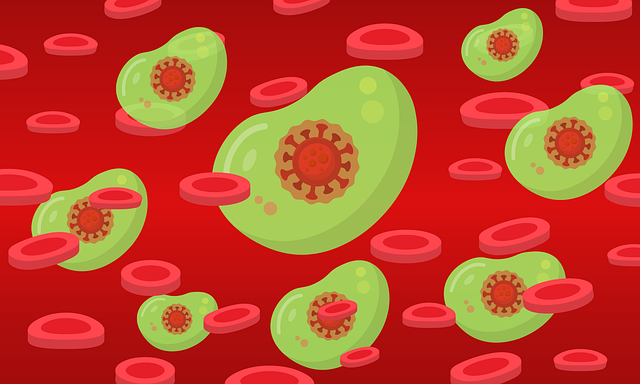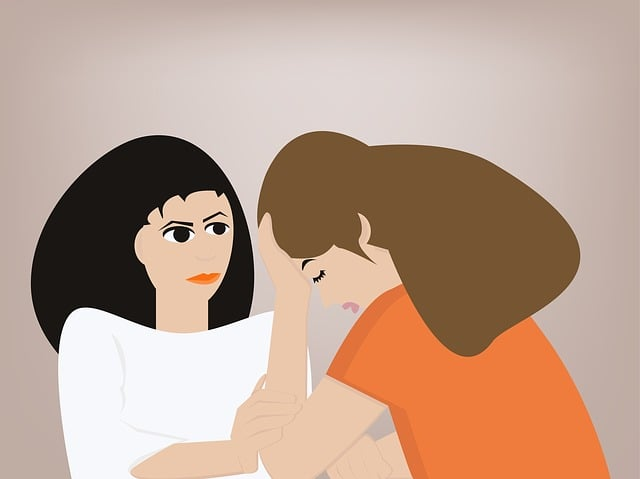Swollen lymph nodes, those small, bean-shaped structures that play a crucial role in our immune system, have long been a subject of medical curiosity. But what if I told you that these nodes, typically associated with infections, could also be influenced by an unexpected factor: stress? In this exploration, we delve into the intriguing connection between swollen lymph nodes and stress, uncovering the potential implications for our overall well-being and shedding light on the importance of understanding this intricate relationship. Now, let’s explore how our emotional state is closely connected to our physical well-being.
Understanding Swollen Lymph Nodes
Swollen lymph nodes, or lymphadenopathy, occur when small bean-shaped structures in the body’s lymphatic system enlarge. They can be due to various causes, including infections, inflammation, malignancy, allergies, or injuries. Identifying the underlying cause typically requires a medical evaluation, and treatment depends on addressing the specific condition.
Also Read: Short-Term Disability for Mental Health: Your Rights and Options
What Are Lymph Nodes?
Lymph nodes, often described as the unsung heroes of our immune system, are small, bean-shaped structures found throughout our body. They are vital lymphatic system components responsible for maintaining fluid balance, filtering harmful substances, and defending against infections.
Function Of Lymph Nodes
- Lymph nodes are tiny filtration centers strategically positioned in various body parts, from the neck and armpits to the groin and abdomen.
- They act as checkpoints for the lymphatic fluid, which carries immune cells and waste products. Here, they scrutinize the contents and act as the body’s vigilant security, intercepting potential threats.
The Role Of Lymph Nodes In The Immune System

Lymph node functions can be summarized as follows:
- Immune Response Activation: Lymph nodes are meeting points for immune cells, including lymphocytes (T and B cells) and macrophages. These cells work together to identify and neutralize foreign invaders.
- Immune Surveillance: Lymph nodes help monitor the body for infections and diseases. Immune cells in the lymph nodes constantly scan the lymphatic fluid for signs of pathogens.
- Immune Memory: Lymph nodes are involved in the development of immune memory. They store information about previously encountered pathogens, allowing the immune system to respond more effectively if the same pathogen is encountered in the future.
- Transport of Lymph: Lymph nodes facilitate the movement of lymphatic fluid throughout the body. This fluid carries immune cells, nutrients, and waste products, aiding in the body’s defense mechanisms and overall immune function.
When the immune system recognizes a threat, it triggers an immune response, and lymph nodes are a central part of this process.
Also Read: Relational Therapy: Strengthening Connections and Communication
Causes Of Swollen Lymph Nodes
Some common medical causes of swollen lymph nodes include:
- Infections: Infections are the most frequent cause of lymph node swelling. This can result from bacterial, viral, or fungal infections. Common examples include:
- Bacterial infections: Strep throat, tuberculosis, and skin infections.
- Viral infections: Cold, flu, mononucleosis (mono), and HIV.
- Fungal infections: Candidiasis and histoplasmosis.
- Inflammatory Conditions: Non-infectious inflammatory conditions can lead to swollen lymph nodes. Examples include autoimmune diseases like lupus and rheumatoid arthritis, as well as inflammatory bowel disease.
- Cancer: Swollen lymph nodes may be a sign of cancer. They can occur when cancer cells from the primary tumor spread to nearby lymph nodes (metastasis). Cancers such as lymphoma and leukemia originate in the lymphatic system.
- Allergies: Allergic reactions can trigger the immune system, causing lymph nodes to swell. This can be due to food allergies, insect stings, or environmental factors like pollen.
- Injuries: Physical injuries or trauma near lymph nodes can lead to temporary swelling. Infections can also develop if the injury results in broken skin.
- Medications: Certain medications, particularly those that affect the immune system, may lead to lymph node swelling as a side effect.
- Immune System Disorders: Disorders that affect the immune system can cause lymph node enlargement, such as sarcoidosis.
When Swollen Lymph Nodes May Indicate Underlying Health Issues
Swollen lymph nodes may indicate underlying health issues when they exhibit certain characteristics. These include:
- Persistent duration
- Painless and hard swelling
- Progressive growth
- Generalized swelling in multiple lymph node groups
- Accompanying symptoms like weight loss or fever
- Family history of relevant conditions
- Patient’s age
While such characteristics can raise concern, not all cases of swollen lymph nodes are serious and may result from common infections. To address doubts or unclear causes, it is advisable to consult a healthcare professional for proper evaluation and diagnosis.
The Stress And Health Connection

Stress is more than a mental burden; it profoundly impacts our physical well-being. When we experience stress, our bodies release stress hormones, such as cortisol and adrenaline. These hormones can lead to various physical effects, including increased heart rate, elevated blood pressure, and muscle tension. Chronic stress is associated with conditions like heart disease, hypertension, and even digestive problems.
The Body’s Stress Response And Its Potential Consequences
The body’s stress response is a natural reaction to stressors, involving the release of stress hormones. Short-term consequences include:
- Increased alertness
- Heightened physical performance
- Suppressed non-essential functions
Long-term consequences of chronic stress may include:
- Mental health disorders
- Cardiovascular problems
- Immune suppression
- Digestive issues
- Weight gain
- Sleep problems
- Hormonal imbalances
Effective stress management strategies, such as exercise, relaxation techniques, a balanced diet, and seeking support, are essential for minimizing these negative consequences and promoting overall well-being.
 Stress And The Immune System
Stress And The Immune System
Stress has a profound impact on the immune system. It can alter the balance of immune cells and impair the body’s ability to defend against infections. This weakening effect is partly due to the release of stress hormones, which can suppress the immune response. Thus, individuals under prolonged stress may find themselves more susceptible to illnesses.
How Chronic Stress Can Weaken The Immune System
Chronic stress weakens the immune system by elevating cortisol levels, suppressing immune cells, promoting chronic inflammation, disrupting immune balance, impairing immune memory, altering immune signaling, reducing antibody production, inhibiting wound healing, and shifting the body’s priorities away from immune functions. This weakened immune response makes individuals more susceptible to infections and illnesses. Managing chronic stress through various strategies is essential for preserving immune system health and overall well-being.
Also Read: Can Adderall Help with Anxiety? Exploring the Effects and Considerations
Can Stress Cause Swollen Lymph Nodes?
Scientific studies have explored the relationship between stress and swollen lymph nodes, but the connection is not direct. Stress can influence the immune system and potentially contribute to conditions that result in swollen lymph nodes, but it is not a direct cause of lymphadenopathy. Swollen lymph nodes are more often a response to infections, inflammation, or other medical conditions. The impact of stress on the immune system is complex, and individual responses to stress may vary. If you have concerns about swollen lymph nodes and their potential link to stress, it is advisable to consult a healthcare professional for a proper evaluation and diagnosis.
Key Findings From Relevant Research
While the research in this area is ongoing, some key findings have emerged. Studies suggest that chronic stress may lead to systemic inflammation, which could influence the lymph nodes. Stress-related changes in immune function may also affect the lymphatic system. However, more comprehensive research is needed to establish a concrete cause-and-effect relationship.
The Psychological Aspect
Psychological stress has a remarkable ability to manifest in physical symptoms. This is often referred to as psychosomatic symptoms, where emotional distress can lead to real, tangible physical effects. In the case of swollen lymph nodes, it’s believed that the body’s response to chronic stress could be one of the contributing factors.
Case Examples Of Stress-Related Health Issues
Stress can contribute to a wide range of health issues, and here are some case examples of stress-related conditions:
- Anxiety Disorders: A young professional experiences chronic stress due to work pressure and personal responsibilities. Over time, they develop generalized anxiety disorder, characterized by excessive worry, restlessness, and physical symptoms like muscle tension and insomnia.
- Depression: A middle-aged individual faces prolonged stress, including job loss and financial difficulties. This stress leads to the development of major depressive disorder, with symptoms such as persistent sadness, fatigue, and loss of interest in previously enjoyed activities.
- Gastrointestinal Problems: A student undergoes significant stress during exams, leading to gastrointestinal issues such as irritable bowel syndrome (IBS). Symptoms include abdominal pain, diarrhea, and constipation, all exacerbated by stress.
- Cardiovascular Conditions: A middle-aged executive experiences chronic work-related stress. Over time, this stress contributes to the development of high blood pressure (hypertension) and an increased risk of heart disease.
- Autoimmune Diseases: A woman faces prolonged emotional stress, such as a difficult divorce and job-related pressures. This chronic stress is believed to trigger the onset of an autoimmune condition like rheumatoid arthritis, leading to joint pain and inflammation.
Also Read: Signs a Fearful-Avoidant Loves You: 10 Clues They Can’t Hide
 Managing Stress For Better Health
Managing Stress For Better Health
There are various stress reduction techniques available to help individuals maintain better health. These methods include:
- Mindfulness meditation
- Deep breathing exercises
- Regular physical activity
- Maintaining a healthy work-life balance
Each of these strategies can aid in alleviating stress and its potential impact on the body.
How Stress Reduction Can Support Overall Health
Effective stress management not only improves mental well-being but also has a positive impact on physical health. Reduced stress levels can help lower the risk of stress-related health issues, including those that might affect lymph nodes. It promotes overall health and well-being by allowing the body to function optimally.
When To Seek Medical Help

While stress can factor in lymph node swelling, it’s crucial to recognize when medical attention is needed. Indications for seeking help include persistent or unexplained lymph node enlargement, associated symptoms like fever, night sweats, or unintentional weight loss, or a history of exposure to infections or known risk factors.
Medical Evaluation And Diagnosis
When swollen lymph nodes warrant concern, a healthcare professional can thoroughly evaluate them. This may include a physical examination, blood tests, imaging studies, and sometimes a lymph node biopsy to identify the underlying cause. A precise diagnosis is essential to rule out severe health conditions and determine the appropriate treatment.
By exploring stress reduction techniques and understanding when to seek medical help for swollen lymph nodes, individuals can take a proactive approach to maintaining their health. Effectively managing stress and knowing when to consult a healthcare provider can play a pivotal role in preventing, addressing, and treating health concerns, all while supporting the well-being of the lymphatic system.
Conclusion
Our journey through the intricate connection between stress and swollen lymph nodes has revealed the critical role of managing stress for better health. We’ve explored the potential link between stress and lymph node activation, the physical manifestations of psychological stress, and when to seek medical guidance for swollen lymph nodes. By incorporating stress reduction techniques and recognizing the need for medical attention when necessary, individuals can take proactive steps to maintain their mental and physical well-being. The complex interplay between stress and health underscores the importance of a holistic approach to our overall wellness.
- Left Arm Pain and Anxiety: Understanding the Relationship - November 23, 2023
- Anxiety Paralysis: Coping with Overwhelming Stress - November 23, 2023
- Anxious vs. Nervous: Differentiating Emotions and Responses - November 15, 2023
This site contains affiliate links to products. We will receive a commission for purchases made through these links.


 Stress And The Immune System
Stress And The Immune System Managing Stress For Better Health
Managing Stress For Better Health

